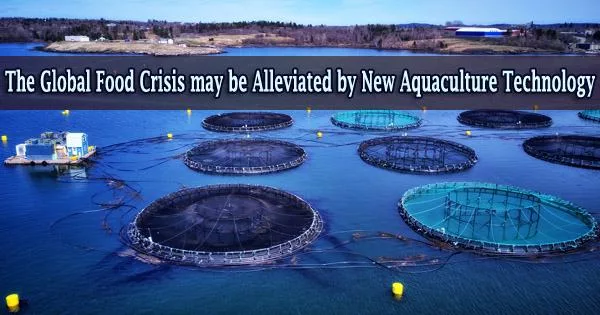Researchers at Tel Aviv University and the Israel Oceanographic and Limnological Research Institute in Haifa have created a cutting-edge technology that enables the growth of “enriched seaweed,” which is seaweed that has been infused with nutrients, proteins, dietary fiber, and minerals for the needs of people and animals.
The “enriched seaweed” is a natural superfood with exceptionally high nutritional value that can be used in the future for the health food industry and to secure an unlimited food source, claim the researchers. They claim that the state-of-the-art technology significantly increases the growth rate, protein levels, healthy carbohydrates, and minerals in the seaweed’s tissues.
The research was led by Ph.D. student Doron Ashkenazi, under the guidance of Prof. Avigdor Abelson from the School of Zoology, George S. Wise Faculty of Life Sciences at Tel Aviv University and Prof. Alvaro Israel of the Israel Oceanographic and Limnological Research Institute (IOLR) in Tel Shikmona, Haifa.
The article was published in the scientific journal Innovative Food Science & Emerging Technologies.
In the study, Ulva, Gracilaria, and Hypnea local species of algae were grown in close proximity to fish farming systems under various climatic conditions, according to Doron Ashkenazi.
The unique circumstances made it possible for the seaweed to grow abundantly and significantly boost their nutritional worth, resulting in “enriched seaweed,” a superfood.
Even the biblical manna that provided nourishment for the Israelites in the desert can be compared to the utilization of seaweed as a nutrient-dense food source that satisfies all human nutritional demands.
Through the technological approach we developed, a farm owner or entrepreneur will be able to plan in advance a production line of seaweed rich in the substances in which they are interested, which can be used as health foods or nutritional supplements; for example, seaweed with a particularly high level of protein, seaweed rich in minerals such as iron, iodine, calcium, magnesium, and zinc, or in special pigments or anti-oxidants. The enriched seaweed can be used to help populations suffering from malnutrition and nutritional deficiencies, for example disadvantaged populations around the world, as well as supplements to a vegetarian or vegan diet.
Doron Ashkenazi
In addition to the cosmetics business, it will be feasible to apply the enhanced seaweed to other health-related industries, such as medicine or nutritional supplements.
“Seaweed can be regarded as a natural superfood, more abundant in the necessary components of the human diet than other food sources,” Ashkenazi adds.
“Through the technological approach we developed, a farm owner or entrepreneur will be able to plan in advance a production line of seaweed rich in the substances in which they are interested, which can be used as health foods or nutritional supplements; for example, seaweed with a particularly high level of protein, seaweed rich in minerals such as iron, iodine, calcium, magnesium, and zinc, or in special pigments or anti-oxidants. The enriched seaweed can be used to help populations suffering from malnutrition and nutritional deficiencies, for example disadvantaged populations around the world, as well as supplements to a vegetarian or vegan diet.”
Additionally, unlike terrestrial agriculture, aquaculture, and specifically our suggested seaweed farming method, doesn’t need a lot of land, fresh water, or fertilizer. By lowering environmental dangers, it is environmentally friendly and protects nature and the ecological balance.
In actuality, the new methodology provides a clean, sustainable agriculture, which is the perfect condition. Governments all around the world are now starting to encourage integrated aquaculture because of its advantages for the environment, which include lowering nutrient loads in coastal waterways and reducing gas emissions and carbon footprints. It helps fight the climate issue and global warming in this way.
Doron Ashkenazi concludes: “Technologies of this type are undoubtedly a model for a better future for humanity, a future where humans live in idyll and in health in their environment.”
The research was conducted in collaboration with other leading researchers from around the country, including Guy Paz and Dr. Yael Segal of the Israel Oceanographic and Limnological Research Institute (IOLR) in Haifa, Dr. Shoshana Ben-Valid, an expert in organic chemistry, Dr. Merav Nadav Tsubery of the Department of Chemistry in the Faculty of Exact Sciences at Bar-Ilan University, and Dr. Eitan Salomon from the National Center for Mariculture in Eilat.





